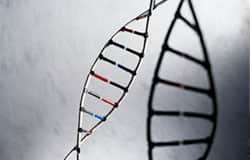| An article appearing online on September 16, 2008 in The Lancet Oncology reports a pilot study conducted by Dean Ornish, MD and colleagues which found that adopting positive lifestyle changes increases the activity of telomerase, the enzyme responsible for maintaining telomeres. Telomeres are DNA-protein complexes that cap the ends of chromosomes, aiding in their stabilization. Telomere length is associated with cellular age, and adequate telomere length is vital to maintaining cells, including immune system cells which protect the body against a number of diseases, such as cancer. Longer telomere length has been associated with increased resistance to disease and premature death in prostate, breast, lung and colorectal cancers. The current study involved 24 patients with low-risk prostate cancer. Dr Ornish, of the Preventive Medicine Research Institute in Sausalito, and his associates at the University of California, San Francisco, conducted a three day intensive residential retreat followed by a three month comprehensive lifestyle modification program. Participants were asked to adopt diets that limited fat to 10 percent of their calorie intake, and which contained a low amount of refined carbohydrates, abundant amounts of whole grains, fruit and vegetables, and supplemental soy protein powder, fish oil, vitamin E, selenium, and vitamin C. The subjects were also asked to engage in moderate aerobic exercise for one half hour per day and one hour stress management periods for six days per week, in addition to a one hour weekly group support session. Blood samples were analyzed for telomerase activity and other factors, and psychological distress was evaluated at the beginning of the study and at the end of the three month treatment period. Participants reported close adherence to the lifestyle recommendations. By the end of the study, telomerase levels in peripheral blood mononuclear cells had increased by 29 percent, and low-density lipoprotein (LDL) cholesterol levels declined from an average of 3.2 to 2.3 micromoles per liter. Additionally, psychological distress, body mass index, waist circumference, and systolic blood pressure were reduced. Scientists are investigating the role of the telomerase in combating aging-related diseases, yet the enzyme may sometimes have an opposing role in the quest for a longer life because it helps maintain immortalized cancer cells. However, in the current study, prostate specific antigen (PSA), which is a marker of prostate cancer progression, slightly improved, as did free PSA. Additionally, there was no clinical evidence in disease progression in the study’s subjects. The authors remark that oxidative stress and inflammation are the most common causes of accelerated telomere shortening, and that both processes stem from poor nutrition, insufficient exercise, obesity, metabolic syndrome, and stress: conditions that the current study’s program was designed to combat. The program could have positive effects on many chronic diseases and conditions associated with aging, including certain cancers, cardiovascular disease, diabetes and dementia. "To our knowledge, we have reported here the first longitudinal study showing that comprehensive lifestyle changes — or any intervention — are significantly associated with increases in cellular telomerase activity levels and telomere maintenance capacity in immune system cells," the authors conclude. "The implications of this study are not limited to men with prostate cancer. Comprehensive lifestyle changes may cause improvements in telomerase and telomeres that may be beneficial to the general population as well.” |















